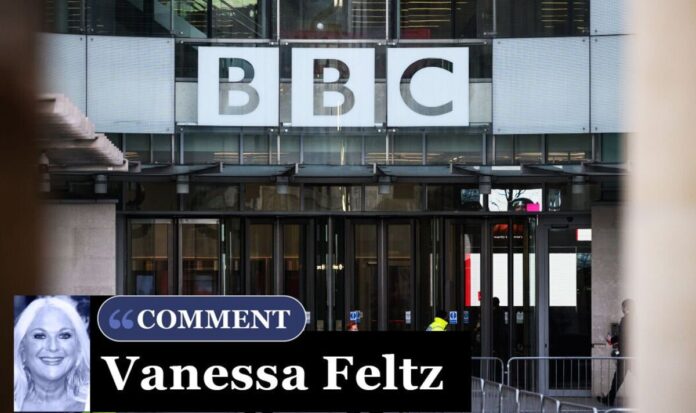BBC local radio stations have seen cuts to programming (Image: Getty)This privilege came after almost 20 years at the helm of BBC Radio London’s first mid-morning show and latterly its Breakfast Show. I am a Londoner, and it was a daily pleasure to host a bespoke programme specifically crafted for my home town.We covered the big issues: homelessness, the low emission zone, NHS waiting times. We did our best to keep calm, inform, and bring moments of light relief through Brexit and Covid. More generally, it was our job to be particular. We could devote our attention to an attempt to replace the bricks in Brick Lane, throw our passion behind the preservation of a city farm, confront the leader of bankrupt Croydon Council and debate the pros and cons of the Garden Bridge. Every month – until Sadiq Khan got the post and didn’t dare set foot in my studio – we heard from Mayor of London Ken Livingstone and his successor Boris Johnson, both of whom would come in and take calls from listeners.No subject was too parochial, no concern too personal. Both men grappled with potholes, unswept leaves, and London transport issues.When London triumphed – whether it was our Olympic bid and even more spectacular Olympics, our world-beating restaurants, the Notting Hill Carnival – we celebrated. When London suffered – 7/7, Grenfell Tower and the London Bridge terror attacks – we had the time and sense of intimate involvement to commiserate and cover the story in a detailed way that national stations could not match.The essence of local radio is to pull focus from the engulfing wider issues to the miniature. Reporting London must be entirely different from reporting Sussex or Manchester. Shows must cater to the precise concerns of their own uniquely placed audience.It is impossible to be both local and generic. This idea, in one oxymoronic blow, destroys the purpose of local radio. The news that ‘cuts will leave BBC local stations with a handful of programmes specific to their area’ is the death knell. My heart bleeds for the broadcasters, as well as those behind the scenes whose raison d’etre is being destroyed.Interviewed in a reputable broadsheet paper about the alleged row with her in-laws, Nicola Peltz Beckham, 27, did her utmost to pour oil on troubled waters. ‘No family’s perfect’, she said, fastening on the phrase and repeating it several times.The real question here surely is this: why was the young lady featured at all? She is an actress of little note married to a chap who has trouble making fish and chip sandwiches.Both are buoyed by swathes of family cash and followed on social media by gormless gawpers.That Ms Peltz Beckham muttered her way through a profusion of platitudes serves them right. What did they expect? Peltz is married to Brooklyn Beckham (Image: Getty)I admit to a cavalier attitude to the BBC’s Antiques Roadshow. Days before my mother died at the age of 57 in 1995, we were pretending to watch it together. She was in considerable physical pain. I was in mental anguish.We both hoped for the salve of soothing inconsequential nothingness. Instead, someone on the TV show produced an ancient funeral table. We froze as the expert described laying out the corpse. Neither of us uttered a word.My bittersweet joy was resurrected on Sunday when a farthingale sleeve, unseen for 500 years and sewn by Elizabeth I and her ladies in waiting complete with ‘sleeve support’, and owned by the Wollaton family, was produced.Textile maven Hilary Kay almost fainted with ecstasy. On the sofa at home the other half and I swooned in sympathy.What luck to have been watching at that moment and to fall in love with the Roadshow all over again.Thrilled to bits to be invited for my fourth Covid jab this Friday, I am astounded by our barely post-pandemic nonchalance.Could any of us, even a mere, single year ago, have imagined that headlines about ‘Covid cheer’ – as we get set to enjoy a relatively Covid-free Christmas with substantially less morbidity and mortality than previous years – would be relegated to the deep hinterland of most newspapers?Doesn’t this story of comfort, joy and colossal relief qualify as the gigantic dollop of glad tidings for which we are all aching? Proclaim it from the rafters, I say.What fresh hell is this? The Royal Mail is forcing us to fill in a horribly complex form which we must first download and then send off if we are to swap our stash of non-barcoded stamps for new.Since only ancient folk like me, who still pay bills with a cheque in an envelope with a postage stamp upon it, are likely to be hoarding stamps which will be useless by January 31, such a procedure is absurdly demanding. I have no idea how to download a form. Does it involve a printer, something I don’t possess?Couldn’t the RM brain-boxes have dreamed up an easy swap system, and saved the few of us still using their services from this entirely unnecessary slog? Royal Mail is radically overhauling the stamp system (Image: Getty)Professor Tim Spector of King’s College London says your mother was right. The epidemiologist, science writer and author of The Diet Myth says that eating between meals makes us hungrier, especially if we munch sweet treats, so snacking is best avoided.Those of us who grew up with this parental mantra – ‘Food? Now? Don’t be ridiculous! Lunch is in two hours and you’ll ruin your appetite!’ – won’t take kindly to Professor Spector nipping our crunching urges in the bud.One of the delights of adulthood is dipping into the hummus minutes before a meal without a big bossy-boots telling us not to dare even think about it.I’m certain the prof, like my mum, is right. But what an awful bore to hold off on the salt and vinegar crisps until after supper.


